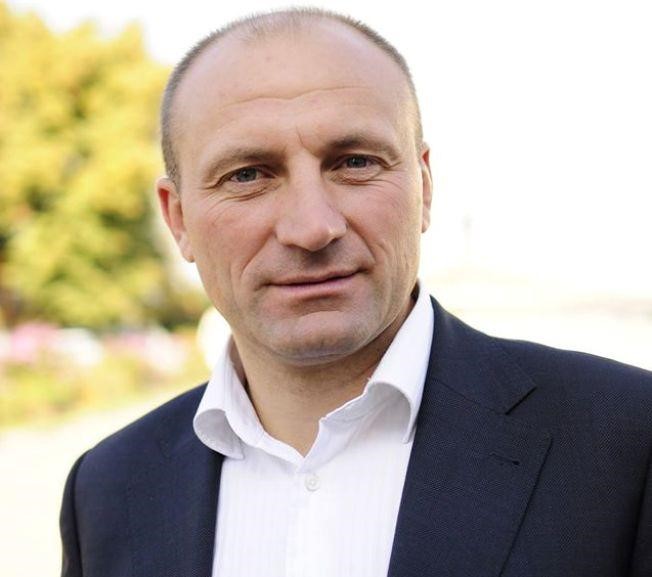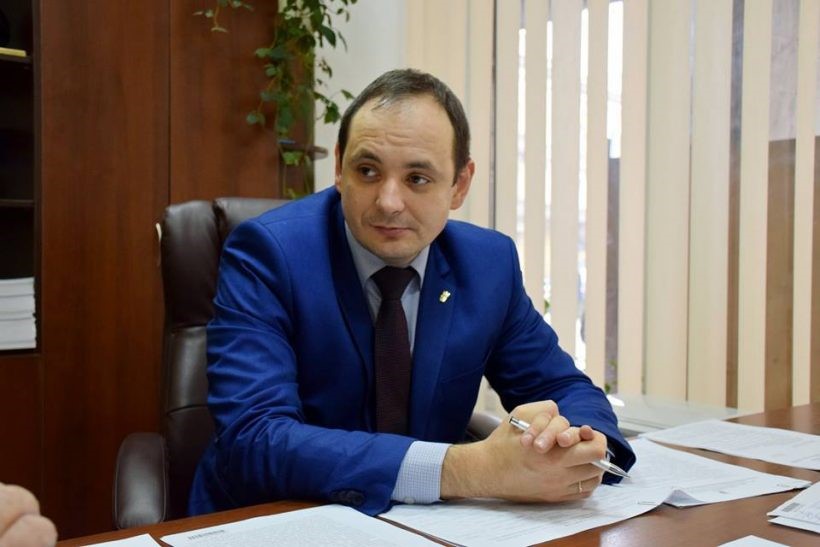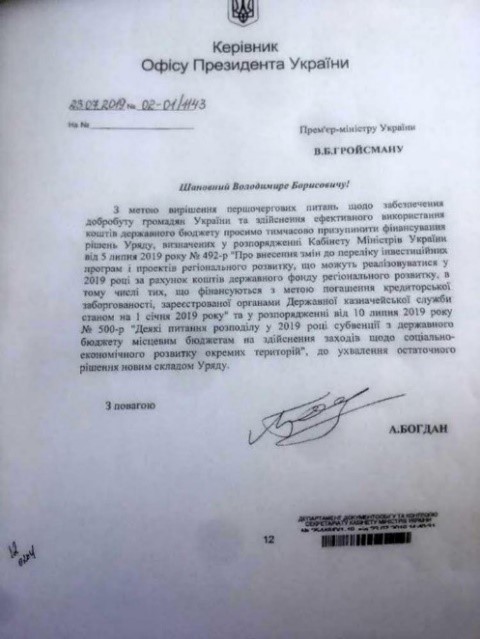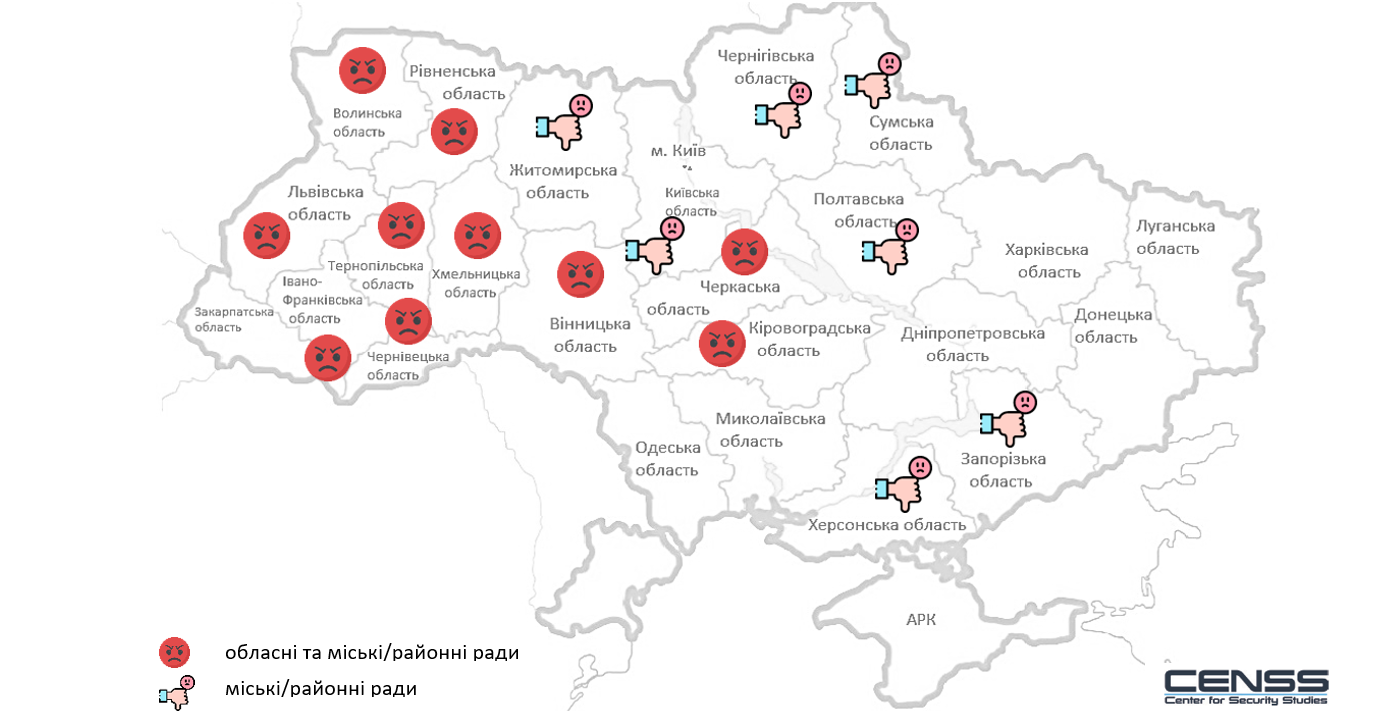It became clear long before the open speeches of mayors in March that relations between the central government on the one hand and local government on the other were not simple. At the briefing, dedicated to the year of the presidency, Volodymyr Zelensky announced it publicly.
Over the past few months, the tension between central and local authorities has obtained the highest scale. Why did the mayors start openly oppose the presidential and government decisions? What can this situation lead to in autumn during local elections and how does it threaten Ukraine’s integrity and state system? Experts from the Center for Security Studies “CENSS” have analyzed how relations between local and central authorities have developed over the past year.
JULY-NOVEMBER 2019. MAYORS AGAINST PRESIDENTIAL OFFICE: SUSPENSION OF GOVERNMENT FUNDING OF LOCAL SOCIALLY IMPORTANT PROJECTS
After the election of the new President of Ukraine, the first open confrontation between representatives of central and local authorities took place at the end of summer 2019. The reason for the conflict was the appeal made in July 2019 (see a photo) by the Head of the Office of the President of Ukraine Andriy Bohdan to the Prime Minister Volodymyr Groysman to suspend the funding of projects and programs implemented by the State Fund for Regional Development and subventions for the implementation of social and economic development activities in certain areas. The Ministry of Finance then continued to finance relevant projects and programs. However, in early September, with the change of the government, the transfer of funds was stopped. Hundreds of socially important projects in communities that had already been launched (kindergartens, schools, hospitals, construction of roads, bridges, and the like) did not receive the planned amount of state funding.
The Office of the President then explained that the temporary suspension of funding was carried out to verify the effectiveness of the use of budgetary funds, but some representatives of local authorities saw in such actions the desire of the new central authorities to gain advantages in future local elections.
The Association of Ukrainian Cities (hereinafter referred to as “AUC”) joined the conflict resolution by asking the President and the Prime Minister to resume funding. The AUC has also started flash mobs #povernit_hroshi_hromad (return community money), during which the heads of cities and amalgamated territorial communities (hereinafter referred to as “ATCs”) in video messages asked to allocate already planned funds. As of the end of September 2019, 70 out of 169 small towns have recorded a video message to the President asking him to release the funds. It should be noted that the conflict was barely covered by the national mass-media.
After numerous appeals from mayors of cities and towns, statements, letters and meetings of the AUC, the funds blocked since July began to flow to the local budget accounts in November. However, the possibility and effectiveness of their use a month before the end of the budget period is questionable. Besides, critical remarks on the activities of the Presidential Office concerned its powers, because according to the legislation, the issues of distribution of funding for local governments and assessment of efficiency of budget funds usage do not fall under the competence of the President or his consultative and advisory bodies.
This conflict has become a serious challenge for further cooperation between the President’s team, the Government and local authorities, as well as for the effective implementation of the decentralization reform, the active phase of which continued in 2019-2020.
OCTOBER-NOVEMBER 2019. LOCAL GOVERNMENTS AGAINST THE “STEINMEIER FORMULA”
A new conflict between the central authorities and local governments began in October, during which local authorities demonstrated a common ideological position. On October 1, Volodymyr Zelensky said that Ukraine had agreed to the so-called “Steinmeier Formula” on the conditions for holding local elections in the temporarily occupied part of Donetsk and Luhansk Oblasts. Local governments in various regions of Ukraine openly opposed to this formula, calling its position as “the surrender and destruction of Ukraine”.
Therefore, during October-November 2019, official appeals to the President and Verkhovna Rada of Ukraine were sent from 53 city councils: Dubno, Truskavets, Kovel, Cherkasy, Poltava, Yavoriv, Boryslav, Yaremche, Kamianets-Podilskyi, Kropyvnytskyi, Slavuta, Sumy, Rivne, Kalush, Kolomyia, Kosiv, Ostroh, Burshtyn, Sambir, Nadvirna, Kherson, Chervonohrad, Boryspil, Novyi Rozdil, Ivano-Frankivsk, Khmelnytskyi, Netishyn, Bila Tserkva, Lutsk, Horokhiv, Lviv, Brovary, Dolynsk, Koziatyn, Shepetivka, Stryi, Novohrad-Volynskyi, Starokostiantyniv, Polohy, Krasyliv, Pryluky, Radomyshl, Monastyrsk, Ternopil, Varash, Kaniv, Chortkiv, Tokmak, Novovolynsk, Slavutych, Vyshneve. Dozens of district councils, as well as Cherkasy, Kirovohrad, Chernivtsi, Ivano-Frankivsk, Lviv, Ternopil, Rivne, and Volyn Oblast councils adopted and submitted similar appeals to the authorities of the state.
SEPTEMBER-NOVEMBER 2019. BUDGET LIMITATIONS AS A FACTOR OF TENSION INCREASE
It became known in September that the draft law “On the State Budget of Ukraine for 2020” provides for a limitation of state funding (as compared to previous years) for the implementation by the local governments of powers delegated by the state in 2020. The legislative initiatives were negatively perceived by local authorities.
At the beginning of November, Mayor of Dnipro Borys Filatov said that the government was going to take away UAH 160 billion from local governments. The Mayor of Kyiv, Head of the AUC Vitali Klitschko also reported on the underfunding of the budget programs in the amount of UAH 71 billion.
Mayors and delegates of the Association of Ukrainian Cities held a number of meetings with the Prime Minister and members of the Cabinet of Ministers of Ukraine regarding the provisions of the draft law on the state budget for 2020 that threaten local governments. In particular, it was noted that the resources of local budgets are limited, there is a lack of funds for educational subventions, the programme of state financial guarantees for medical care of the population, a decrease in income sources and a decrease in state support for infrastructure development. Moreover, representatives of local governments opposed the centralization of many local development issues and transfer of state social guarantees payments to local budgets. The delegates of the AUC also elaborated their position and disadvantages of the draft Law on State Budget-2020 of the Verkhovna Rada Committee on Budget.
Later on, representatives of local governments opposed to a number of draft laws that may deteriorate the situation of territorial communities, in particular: the removal of excise tax on gasoline from local budgets, the abolition of share participation of developers in the development of infrastructure of settlements. The AUC once again demanded from the President to involve local authorities in the discussion, as these initiatives may lead to scaling back of budget decentralization and deprive local governments of its independence. However, the AUC’s demands were partially met. At the time of preparation of this material, the Verkhovna Rada of Ukraine adopted a law on cancellation of share participation of developers in case of construction of objects of any purpose by order of state or local governments at the expense of state or local budgets, social sphere institutions and a number of others. As for the excise tax, its share remained in the state budget of 2020 in local budgets.
DECEMBER 2019-APRIL 2020. MAYORS AGAINST THE CENTRALIZATION OF AUTHORITY
The greatest wave of dissatisfaction among local authorities and experts on decentralization was caused by the bill, which was submitted by Volodymyr Zelensky to the Parliament in December 2019 and provided for amendments to the Constitution. It was developed as a continuation of the decentralization reform. Among other things, the project proposed to make amendments to the administrative and territorial structure of the state, to reduce the term of tenure of local deputies and heads of local councils.
It was also intended to introduce the position of “prefects” – representatives of the state at the local level with the main function to carry out administrative supervision over the observance of the Constitution and laws of Ukraine by the local governments, as well as to coordinate the activity of territorial bodies of central executive bodies. In the present hierarchy of authorities, the nearest analogue of a prefect is the head of local state administration, but their functions differ significantly. It was planned that prefects should form their own offices, instead of administrations. The President has the right to appoint a prefect at the request of the Government. The prefect can hold the position for only three years and for no more than one term; he is under the control and reports to the President and the Cabinet of the Ministries of Ukraine. According to the submission of the prefect, the President has the right to suspend actions of the head of community, local, district or oblast councils if, in the prefect’s opinion, they violate the Constitution and threaten the sovereignty of Ukraine.
On December 19, 2019, more than 60 leaders of local governments and experts appealed to the state leadership with an open statement on the need to finalize these amendments to the Constitution proposed by the President. They called it “a threat to local governments and democracy in general” and asked not to vote for the draft law because it was prepared without the participation of representatives of local government bodies and public discussion. As of January 24, 2020, there were 333 signatories to this open statement, including more than 250 out of them by chairmen of oblast, city, settlement and village councils.
Responding to the position of the local authorities, on December 27, 2019, the President withdrew the draft law and on the same day introduced a new one, taking into account some comments from local authorities and experts. However, local authorities again were not involved in the development and discussion of the new draft of amendments to the Constitution, and some comments remained unaccounted for.
Such actions led to the second collective appeal in January, almost 200 chairmen of local councils, as well as local deputies and experts repeatedly addressed the President, the Verkhovna Rada of Ukraine and the Cabinet of Ministers of Ukraine with the key requirement to publicly discuss the draft amendments and consult with local authorities.
On January 17, 2020, the President withdrew the draft law, and his team announced consultations and public discussions to be held, which began on February 25 in Kyiv and continued in the regions.
This situation received a lot of publicity and was not left aside by Ukraine’s international partners. The Embassies of Canada and Germany expressed their comments and admonition to the draft law. The Council of Europe, the Directorate General on Democracy in co-operation with experts of the European Commission of Democracy through Law (“Venice Commission”) and the Congress of Local and Regional Authorities recommended improving a number of provisions, in particular, to ensure government prefects’ reporting on most issues under their responsibility.
The plans to discuss the draft law on the amendments to the Constitution were adjusted by COVID-19: from mid-March discussions were held by videoconference, the most recent of which was held on April 27. However, whether the opinion of representatives of the local governments was taking into account in the final version of the draft law on the amendments to the Constitution remains unknown at the time of preparation of this material.
MARCH-MAY 2020. QUARANTINE: MAYORS AGAINST RESTRICTIONS
Increased tension and new conflicts between the central authorities and local governments took place immediately after the Government introduced quarantine restrictions related to COVID-19. This period was accompanied by numerous local protests among various social groups (doctors, entrepreneurs, working parents with young children, etc.) on the socio-economic issues caused by the pandemic, the lack of adequate state support and the absence of a comprehensive government plan to deal with the negative effects of the spread of coronavirus infection. A number of mayors publicly disagreed with the Government’s decisions and refused to comply with some of the quarantine restrictions. This included the closure of kindergartens, schools, restrictions on transport and markets. In response, the President, his office and government representatives openly condemned such actions of the mayors, and in some cases warned of possible leverage in local decision-making (it was about pressure on mayors and the opening of criminal proceedings).
On March 13, 2020 the Mayor of Kharkiv Henadii Kernes has publicly stated that he is against the decision of the government to close schools and kindergartens, but the central government “left him no choice”. He also expressed dissatisfaction with the fact that the decision was taken without consultation with local governments. On March 16, 2020, the Mayor of Kharkiv said that he would not comply with the requirements to suspend intercity and inter-regional passenger connection and the work of underground from March 18. Henadii Kernes called this decision unjustified for the city, where no cases have been recorded. In response, the President publicly condemned such actions and warned the Mayor about possible criminal responsibility for violation of quarantine conditions. On March 17, Henadii Kernes reported about the closure of the underground, while transport remained available for certain categories of citizens. Already on March 20, Mayor of Kharkiv addressed the Prime Minister with the request to resume the work of the underground as the transport collapse took place in the city, the population blocked the roads and the work of the ground transport. Later he addressed to the Prime Minister with the request to support local budgets in quarantine conditions. No official responses to such requests have been reported.
The website of Lebedyn City Council (Sumy Oblast) posted a video of the protest, organized by local residents against the closure of the food market in the city. It resumed work on March 28 after disinfection, but soon representatives of the State Service of Ukraine on Food Safety and Consumer Protection drew up a protocol of administrative violation against the director of the market. The Mayor of Lebedyn supported the market management and said that local governments and small businesses could be destroyed as a result of government decisions.
The Mayor of Odesa Hennadii Trukhanov, as well as the Mayor of Kharkiv, refused to close the markets. In response, the Head of the Office of the President promised to “raise a question” about the actions of the Mayor at the meeting with the Head of State and the Minister of Internal Affairs. Eventually, the markets in Odesa were closed on April 22.
On April 10, the Mayor of Zaporizhzhia Volodymyr Buriak reported on summons in the criminal case related to the failure of the local authorities to comply with the government decree on quarantine restrictions. The Mayor did not support the government’s decision to stop the work of public transport in the city.

Facebook Anatolii Bondarenko
The confrontation of the Mayor of Cherkasy with the President and law enforcement agencies was one of the high-profile. The local authorities of Cherkasy were the first in the country to ease quarantine for some entrepreneurs from May 1, although the government planned such easing of quarantine after May 11.
In response, the President called the decision to ease the quarantine restrictions in Cherkasy an attempt by the Mayor of the city “to make a political rating” and in his video message conveyed to him “a separate flaming salute personally from the President, as well as the Ministry of Internal Affairs and the Security Service of Ukraine”. The Minister of Internal Affairs of Ukraine also reacted to these events, noting that the police had a tough reaction to the easing of the quarantine in Cherkasy. Because of the easing of the quarantine in the city, the police opened criminal proceedings against the Mayor and summoned him for interrogation. On the day when the interrogation was planned, businessmen held a protest outside the local police department. It was also reported that on the eve of May 3, military equipment and the National Guard appeared in the city.
The Mayor of Ivano-Frankivsk Ruslan Martsinkiv and Mayor of Lviv Andrii Sadovyi also openly expressed the need to review the restrictive measures during the quarantine and to allow businesses to work and restore the work of shops and food markets.
They also openly supported the Mayor of Cherkasy. Therefore, Ruslan Martsinkiv noted: “I support the Mayor of Cherkasy Bondarenko!

Mayor of Ivano-Frankivsk Ruslan Martsinkiv: photo https://100metrivka.if.ua/
Quarantine is one for all, not for the elected! They opened a bunch of cases on Mayors, took the funds from the communities, enslaved Ukrainians on going abroad, sold the land, cheated with additional payments to doctors!” In addition, Ruslan Martsinkiv said in an interview on May 6 that “the so-called decentralization has actually turned into the fact that most of the funds were taken from local governments. And there are constant attempts on the part of the Verkhovna Rada and the pro-presidential force to take away powers from local governments. Just see that cities, towns and villages lose the most.”
Earlier, on April 28, Mayor of Ivano-Frankivsk Ruslan Martsinkiv was also prosecuted for allowing local markets to operate.
Supporting the Mayor of Cherkasy Anatolii Bondarenko, the Mayor of Zaporizhzhia and Mukachevo also made statements.
On April 26, the Mayor of Dnipro Borys Filatov addressed the President, negatively assessing the central government on increasing the number of criminal cases against Mayors, especially during the quarantine period.
Mayor of Odesa Hennadiy Trukhanov even before the relaxations of quarantine measures, on May 6 publicly spoke against the government for irresponsible steps during the introduction of quarantine. He declared, that government “do not understand the issues on the scale of the country”.
On May 8, the AUC has appealed to the President to end the pressure on local authorities and to ensure the joint work of the central executive bodies and local governments.
On May 20, at a briefing dedicated to the final review of the year of the Presidential tenure, he recalled the Mayor of Cherkasy, noting that there are 19 criminal proceedings against him and called him “a bandit with whom he will not sit at the same table.” In response, the Mayor of Cherkasy said that Volodymyr Zelensky would not win the local elections in Cherkasy and filed a lawsuit against the President to protect his honor and dignity.
In the absence of dialogue with the central authorities and with the strong support of the local population, some local mayors demonstrated their strong local power and ability to unite against the government, despite differences of opinion and affiliation with different political forces.
MARCH-MAY 2020. TENSION DUE TO THE DISTRIBUTION OF FUNDS TO FIGHT THE CONSEQUENCES OF COVID-19
A number of facts additionally confirmed the lack of dialogue between central and local government, in particular on the financing of measures to prevent the spread of coronavirus infection and to overcome its consequences.
Therefore, since March 2020, representatives of the local governments have tried to join the development of legislation acts related to overcoming the COVID-19 pandemic, but their requests were left without positive results. Involving local mayors to this process could contribute to the effectiveness of the development and implementation of relevant decisions and activities, reduce protest sentiment and avoid conflicts between local and central government.
The quarantine brought the issue of allocation of funds and state support to local governments up to date again. Mayors demanded that the position of the Association of Ukrainian Cities be taken into account when adopting amendments to tax legislation related to the spread of COVID-2019. An open appeal to the state leadership was signed by 22 mayors. The appeal states that local governments ensure the payment of higher wages to medical workers, the purchase of medicines, masks, tests, equipment for hospitals, for which hundreds of millions of UAH are allocated. At the same time, instead of supporting communities, changes in the Tax and Budget Codes they deprive the community of resources.
On April 8, at the government session, it was decided to create the Economic Development Council of Ukraine, which will develop a strategy for the country’s recovery from the crisis caused by the coronavirus infection and further economic development of Ukraine. However, the representatives of local governments were not included to the Council, despite the fact that this was stressed by the Association of Ukrainian Cities, as most problems will have to be solved by local authorities. This decision of the government has once again caused local outrage.
It is worth noting that Ukrainian communities independently joined the counteraction to the spread of coronavirus. Local governments, apart from the introduction of quarantine measures, since the beginning of the quarantine has allocated funds to raise the salaries of medical workers, to purchase medicines, masks, tests, equipment, to organize the transportation of medical workers to work, to deliver products for the elderly and socially unprotected families. Preparing for the ease of quarantine, communities develop crisis recovery programmes, make decisions to support local businesses and the like.
CONSEQUENCES OF CONFLICTS BETWEEN CENTRAL AND LOCAL GOVERNMENT
Local government elections are to be held in October this year. Political parties are actively preparing for them, and local elites also intend to participate.
The intentions of political players at the national level are different. Political actors who influence the formation of politics at the national level intend to build a vertical for cross-cutting influence on the situation in the state – from the center to individual communities. Political actors with no decisive influence at the national level are considering to use local elections to increase such influence at the regional level and in individual communities, primarily in large cities. Control over local governments can simplify or complicate the implementation of the decisions of the national level authorities until they are completely blocked. In addition, local government control over elections in a number of regions can provide an opportunity to influence policy formation at the national level, the so-called “bottom-up” influence.
Local elites seeking to retain or gain control over local governments may be permanently integrated into national party projects, or case-by-case cooperate with them, shifting from one entity to another, or relying on their own forces.
In all three options, the overwhelming priority for local elites is to strengthen/preserve their role in the respective territory, rather than the intention to gain power at the national level. Influence in a region or community is seen as an opportunity to control the distribution of local resources, local markets for goods and services, creating an enabling environment for local business, and the like. At the same time, the possibility of local elites’ influence at the national level is also seen as an objective that can provide access to additional resources from the “center” on a mutually beneficial exchange, resources in exchange for support.
Amidst the preparation of the aforementioned entities for local elections, we observe a gradual increase in tension between the state authorities at the national level and local governments, and in some cases, we can assert the existence of systemic conflicts in the political and economic spheres.
At the same time, there are pro-Russian political actors in Ukraine, promoting the so-called “federalization”, supposedly strengthening the role of regions (not society!) And will be the key to economic stability.
This situation significantly increases Ukraine’s vulnerability to external influences.
The Russian Federation has promoted for a long time the idea of some form of “federalization” of Ukraine. In fact, the Russian Federation’s objective in this direction is to disintegrate Ukraine into separate parts and weaken ties between them, while weakening the “centre” and setting restrictions on its foreign policy and domestic policy of national unity. The next stage could be either the gradual integration of individual regions into the Russian Federation or the creation of an integration union with it in one form or another.
Therefore, the Russian Federation can use political actors in Ukraine and local elites to achieve its objective.
In order to prevent external influence and reduce vulnerability, it is advisable to take a number of measures and implement relevant tasks.
First, there is a need for a clear and understandable decentralization strategy with strengthening of the role of local governments in solving local issues at the community level rather than at the regional level, while at the same time creating effective legal protections that make it impossible for local governments to assign the powers of state authorities.
Secondly, it is worthwhile, not for the form, to involve community representatives in the preparation of policy decisions in areas where their implementation significantly affects the interests of communities and the welfare of their residents.
Thirdly, to introduce an equitable distribution of financial resources between the State and communities, especially in cases of delegation of authorities.
Fourthly, to ensure effective communication of the central executive bodies not only with the representatives of local governments, but also with all citizens regarding the goals, principles and approaches of decentralization, determination of the competence of local governments, ways of solving local problems.
Fifthly, to create conditions, first of all, legislative and introduce educational projects to stimulate the creation of effective non-governmental organizations at the local level, that are able to effectively assist in solving local problems and ensure public control over the distribution of financial and other local resources.
Reducing tension and conflicts between the central and local authorities will reduce the country’s vulnerability, and consequently, the risk of using local elections to undermine Ukraine’s sovereignty and territorial integrity. Let us recall, that Ukraine was losing control through the hybrid actions of the Russian Federation, consisted in the use of both military and non-military means, and in each case used local governments for “legalization”, which under external influence made appropriate decisions.




